Health Initiatives
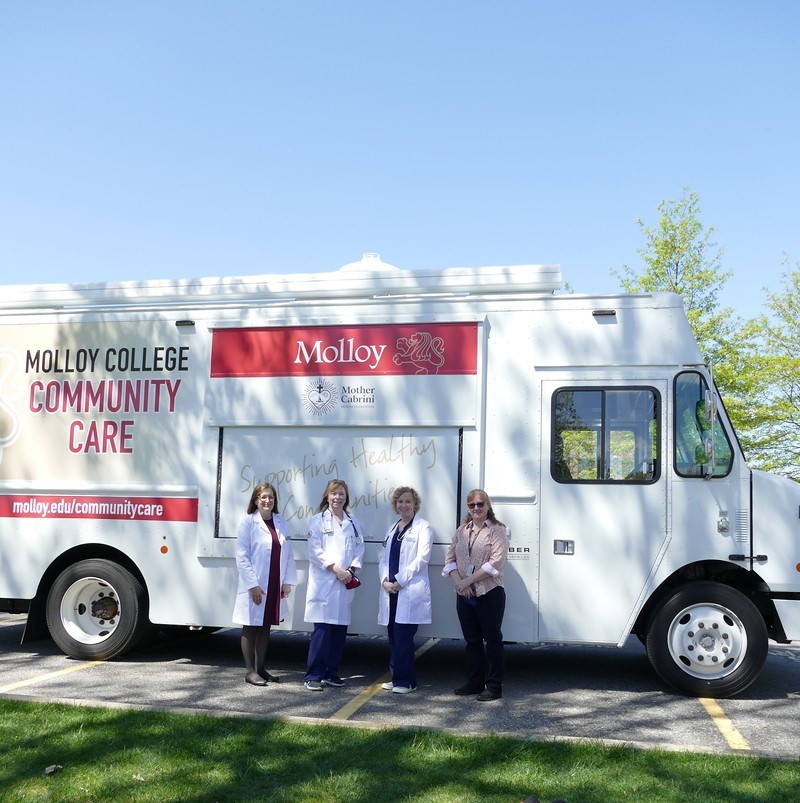
The Barbara H. Hagan School of Nursing and Health Sciences Health Initiatives
Health promotion, population health, and access to care innovations are the foundation for healthy communities and healthy lives. Faculty and students in The Barbara H. Hagan School of Nursing and Health Sciences are taking the initiative to respond to community and individual health concerns and risks, to support the well-being of our communities and to promote health equity though ongoing healthcare projects, services, and activities such as a few highlighted below.
Heart Safe Community Initiative
Members of the Heart Safe Committee at Molloy University have been working diligently towards obtaining the Citizen CPR Foundation’s Heart Safe Community designation for the Village of Rockville Centre, NY. The designation is awarded to municipalities that achieve specific criteria aimed at improving the out of hospital cardiac arrest chain of survival. The committee is comprised of faculty in the School of Nursing and members of the Molloy Nursing Student Association (MNSA). It is a multifaceted community outreach project involving education, policy creation and ongoing collaboration with local government, school district and health system leaders. Key components of the initiative involve providing CPR and AED education for community members, improving access to AEDs, creating cardiac emergency response plans (CERP) and recognizing citizen rescuers who have provided CPR to victims of sudden cardiac arrest. Since the onset of the initiative in the Fall of 2021, the team has trained over 500 individuals in Hands Only CPR and significantly increased the number of AEDs on the Molloy University campus.
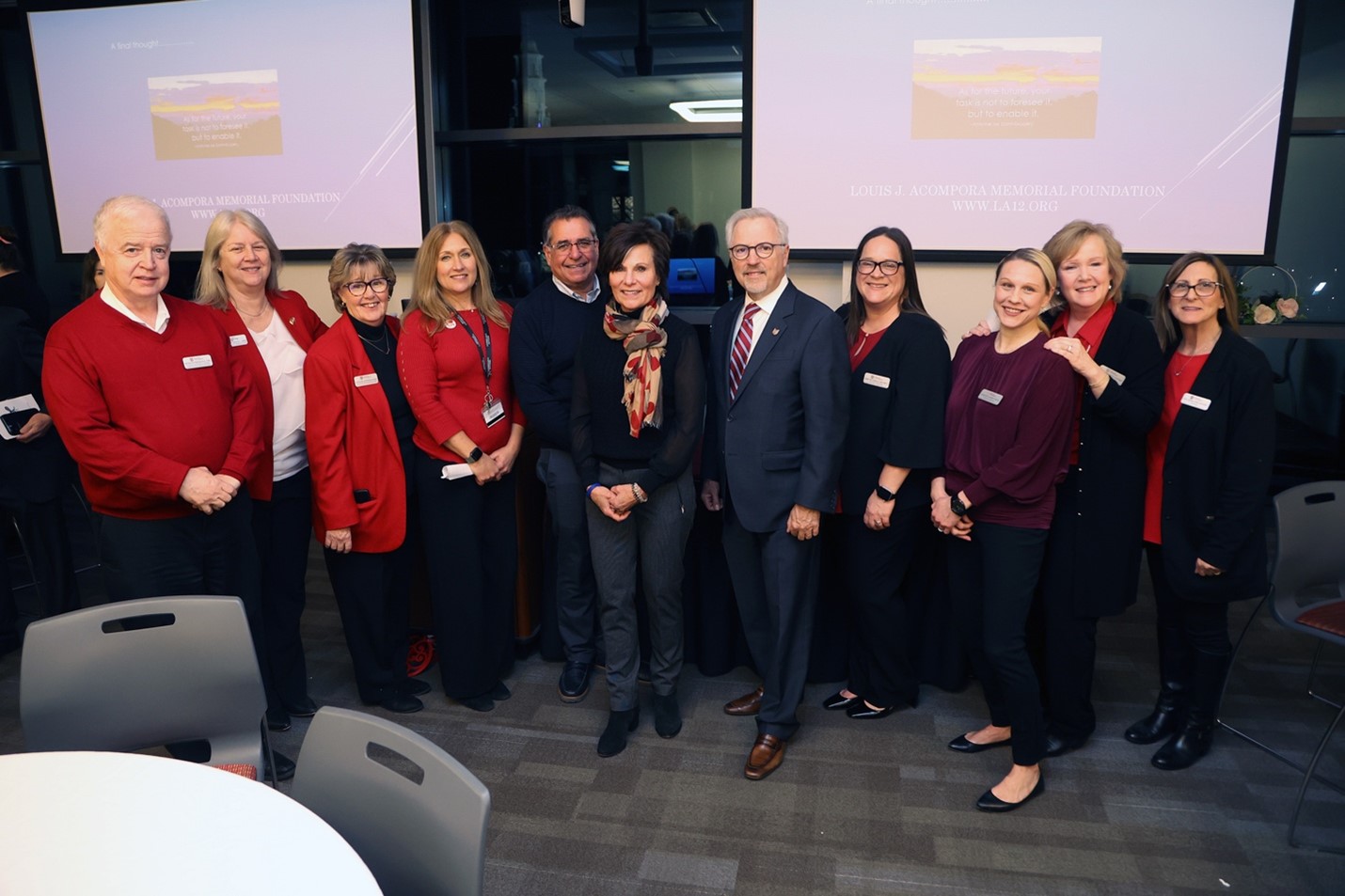
-
Meet the Team
Mary McCormack DNP, APRN, FNP-C is an Assistant Professor of Nursing at the Barbara H. Hagan School of Nursing and Health Sciences at Molloy University. Mary is the committee chair for the Molloy University Heart Safe Community program. As the committee chair, Mary is responsible for overseeing the various components of the Heart Safe initiative as well as securing grant funding. Mary collaborates with key community stakeholders as well as with leadership from and local and national sudden cardiac arrest advocacy groups. https://molloy.elsevierpure.com/en/persons/mary-mccormack/Molloy AlumniMS, FNP 2009DNP 2017
Carole Zarcone DNP, APRN, ANP-C is an Associate Professor of Nursing at Molloy University. She has dedicated her research to improving cardiovascular outcomes by providing medication reconciliation education and CPR and AED education in the community. Dr. Zarcone presented her collaborative research at several local and national conferences. As an assistant chair to the Heart Safe Committee at Molloy University, Carole organizes Hands-only CPR/AED events for the University and Community at large. https://molloy.elsevierpure.com/en/persons/carole-zarcone
Molloy Alumni
BSN, 1995
MS, ANP 2007
Kendra Hoepper DNP, APRN, PNP-BC is a full-time Associate Professor and Chair of the Nursing Department and BSN Program Director at Dominican University of California. Kendra has dedicated her research and scholarship to improving health awareness in the community and has presented at several local, national, and international conferences. As a member of the Heart Safe Committee, Kendra has assumed the responsibility of collaborating with the leadership teams in the community recreation centers, senior centers and the Rockville Centre Chamber of Commerce.
Molloy Alumni
MS, PNP 2000
DNP 2018
Elizabeth Cotter, PhD, RN, NPD-BC is a Professor of Nursing at the Barbara H. Hagan School of Nursing and Heath Sciences at Molloy University. She is a member of the Heart Safe Committee working to make Rockville Centre a designated heart safe community. She co-created the heart safe badge that includes both students at Molloy University and high school students from neighboring areas. She facilitates hands only CPR training sessions for Molloy University students in the Freshman Studies community and in the community at large https://molloy.elsevierpure.com/en/persons/elizabeth-cotter
Molloy Alumni
BSN 1986
MS 1992
Geraldine Moore, EdD, RN-BC, AEC is a Professor of Nursing at the Barbara H. Hagan School of Nursing and Heath Sciences at Molloy University. She is a member of the Heart Safe Committee working to make Rockville Centre a designated heart safe community. She co-created the heart safe badge and facilitates hands only CPR training to community members on the Molloy/Mother Cabrini Mobile Health Van. https://molloy.elsevierpure.com/en/persons/geraldine-moore
Molloy Alumni
BSN 2003
MS 2005
Kathleen Lapkowski MS, RN former Associate Director Nursing Continuing serves as the Rockville Centre community liaison for the Heart Safe initiative at Molloy University. As a resident of Rockville Centre, Kathleen has been an instrumental asset to the Heart Safe Committee. Kathleen is responsible for communicating with members of the Rockville Centre local government, volunteer fire department officials and emergency medical service providers.
Molloy Alumni
BSN 1973
Dorothy Veron PhD, RN, NEA-BC, is an Assistant Professor of Nursing at Molloy University. Her clinical background is in cardiology and her research interest is self-care and stress management strategies. Dr. Veron has disseminated research outcomes at local and national conferences. As a member of the Heart Safe Committee, she drafted the Cardiac Emergency Response Plan (CERP) for the university and supports the Hands-Only CPR/AED program leading and educating at events for the university and community at large.
Jacqueline Flannery, PhD, RN is an Assistant Professor of Nursing at Molloy University. Her clinical background is in Ambulatory Surgery and Critical Care. Her research interests include workplace safety and incivility in the workplace. As a member of the Heart Safe Committee, she assists in Hands-Only CPR and AED training.
Anthony DiDio MSN, MBA, RNC-OB is an Instructor of Nursing at the Barbara H. Hagan School of Nursing and Health Sciences at Molloy University. His clinical expertise is in obstetrics and adult health and has held many clinical and leadership roles. In the Division of Continuing Education and Professional Studies he is program director focusing on registered nurses returning to the workforce. He is a member of the Heart Safe Committee and is passionate about Hands-Only CPR and AED education in the community and on the campus of Molloy.
Molloy Alumni
BSN 2011
MS 2015
MBA 2021Molloy University Nursing Student Association- Heart Safe Sub-committee Directors
Susan Donohue, Class of May 2024
Alyssa Kriete, Class of May 2024
Amanda Feldmann, Class of May 2024
-
Heart Safe Badge: University & High School Students
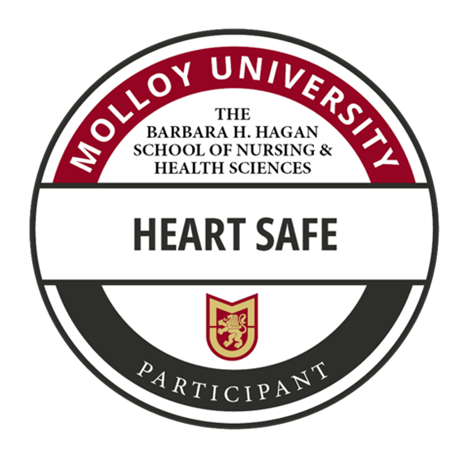
Molloy University students and high school students are eligible to receive the Heart Safe badge after achieving the criteria. Earners of this badge will bring awareness of the mission of the American Heart Association and the heart health initiative. Earners will have an increased awareness of health promotion with a focus on heart health. Earners will gain an in-depth understanding of heart safety, health promotion, and community health needs and serve as a resource for heart-healthy programs. Earners will take part in campus-wide and/or community-wide activities as Hands only CPR events on campus or in the community.
Badge Criteria
- Successful completion of the American Heart Association Basic Life Support (BLS) certification
- Completion of Smart Heart Training Videos
- Attend 2 Heart Safe Community committee meetings
- Assist project leader with meeting minutes and agenda
- Facilitate 3 on campus or community American Heart Association Hands Only CPR sessions (ranging from 15 to 30 minutes each)
-
CPR/AED Training
The Heart Safe Committee offers free American Heart Association CPR Anywhere and CPR in Schools training to community members. Each training sessions lasts approximately 45 minutes and participants receive an American Heart Association course completion certificate. These courses are geared towards non-medical professionals and provide learners with the skills necessary to respond to an out of hospital cardiac arrest.
Individuals in need of certification (BLS/Heart Saver, ACLS, PALS) are encouraged to reach out to the continuing education department at Molloy University to enroll in a certification course.
Click here to view the American Heart Association’s brief Hands Only CPR video instructional video.

-
Resources & Education

Parent Heart Watch is a national sudden cardiac arrest in youth prevention advocacy group that provides evidence-based resources on sudden cardiac arrest screening, preparedness, and education.
Call-Push-Shock is a national collaborative movement with a mission to motivate bystander CPR/AED action and increase sudden cardiac arrest survival rates. Molloy University was the first institution of higher learning to partner with this national initiative and has co-branded educational materials which are distributed at training events.


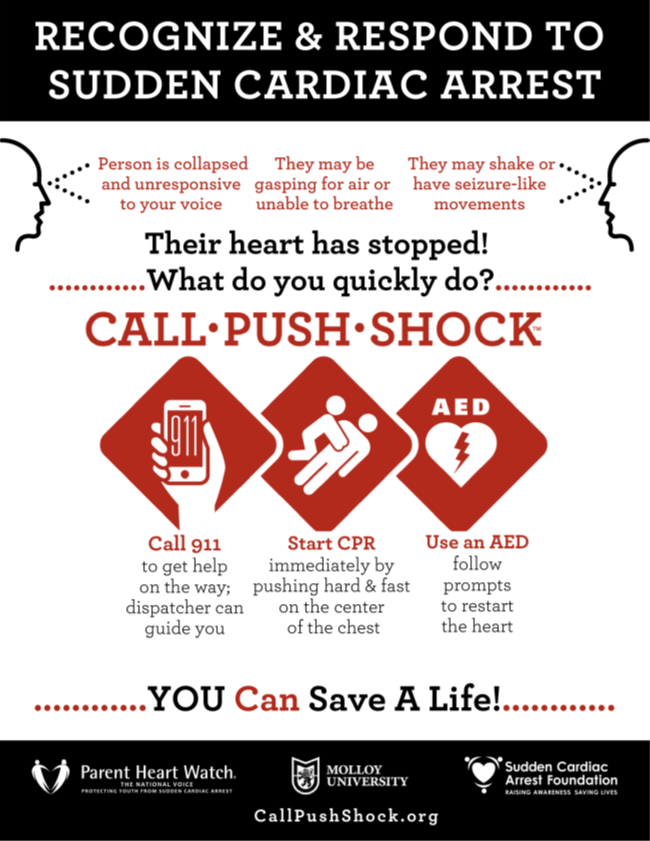
Skin Cancer Education and Research
Molloy nursing students are eligible to receive a skin cancer educator badge after completing nursing courses- NUR 2990 or 2900, have the ability to recognize skin cancer lesions, distinguish between benign and cancerous lesions and refer patients to their health care providers for further evaluation and treatment. Earners can educate clients about skin cancer and sun protective behaviors to prevent skin cancer.
Skills learned:
-
Skin Smart Campus
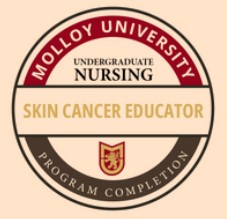
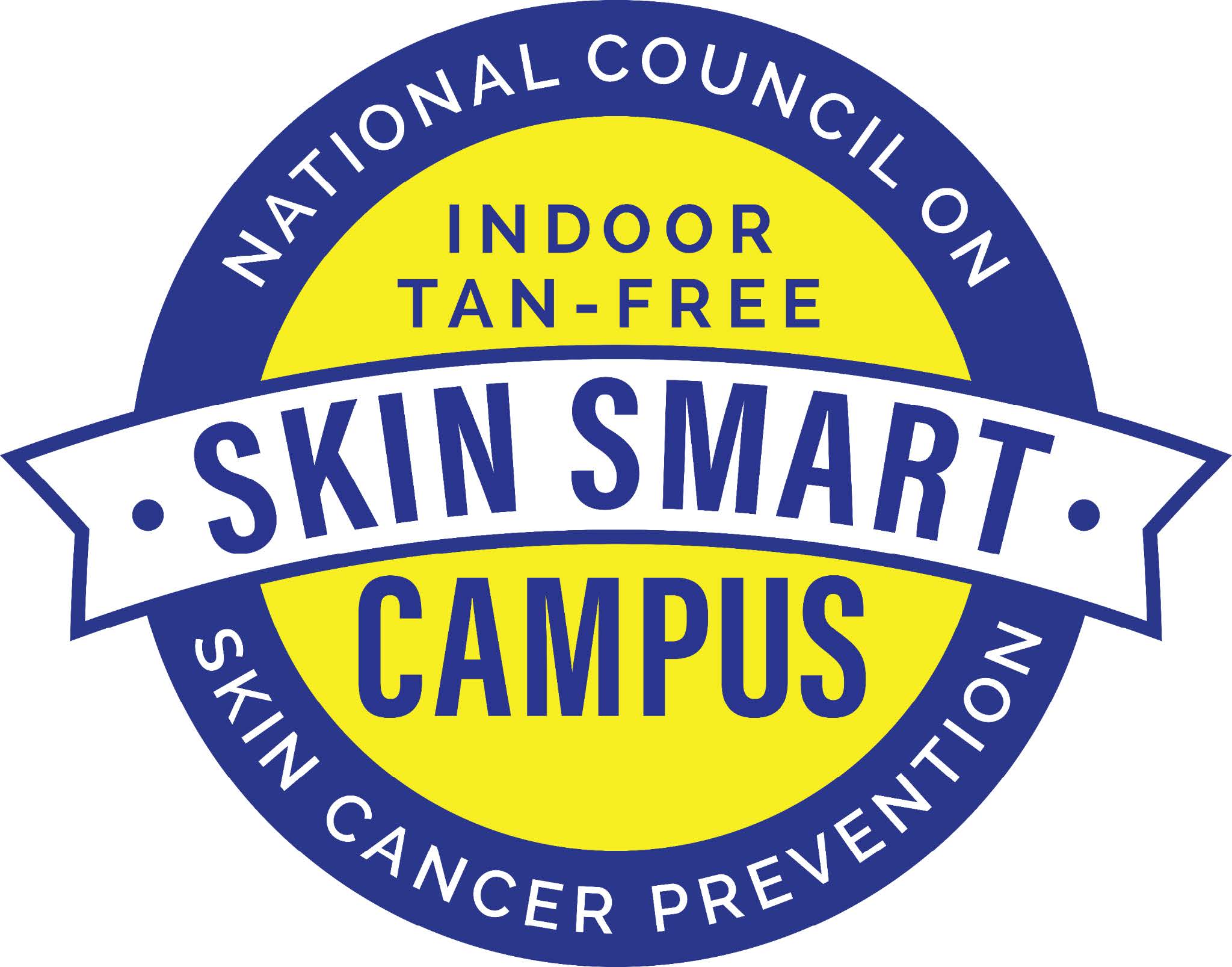
Molloy University has been recognized as a Skin Smart Campus by The National Council on Skin Cancer Prevention. Ensuring the well-being of our students, we are providing a safe and healthy learning and living environment on and off campus, pledging to keep indoor tanning devices off our campus and our affiliated buildings. We also promote skin cancer prevention policies and education.
The Indoor Tan-Free Skin Smart Campus Initiative is sponsored by the National Council on Skin Cancer Prevention in response to the 2014 U.S. Surgeon General’s Call to Action to Prevent Skin Cancer which concluded that there is a strong association between increased risk of skin cancer and indoor tanning use. Ultraviolet (UV) radiation exposure from indoor tanning is completely avoidable which allows for interventions to help reduce skin-cancer related illness and deaths. Numerous studies have found that skin cancer is the most common type of cancer in the United States, with melanoma as one of the most common cancers diagnosed among young adults. According to The International Agency for Research on Cancer Working Group, the use of indoor tanning facilities before the age of 35 increases the risk for melanoma by 75 percent. -
Skin Cancer Protection
Your skin is your largest organ. Skin cancer is the most common cancer in the United States. Skin cancer is increasing in frequency in this country and worldwide. The most common skin cancers are basal cell carcinoma and squamous cell carcinoma. Melanoma is the deadliest of the skin cancers as it can metastasize (spread to vital organs) quickly. Most skin cancers occur from unprotected UV exposure. Many people do not use sun protective behavior.
Skin cancer risk
Anyone can get skin cancer. People with blond hair and light eyes are at increased risk for skin cancer. However, people of color have a higher rate of skin cancer mortality due to a delay in diagnosis. Acral lentiginous melanoma is more common in people of color. These lesions occur more often in the palms of hands, soles of feet and nails. Bob Marley died at age 36 from acral lentiginous skin cancer.
How to protect your skin
- Avoid sun between 10 am- 4pm when the sun is the strongest.
- Seek shade
- Use protective clothing and wide-brim hats and sunglasses.
- Use sunscreen SPF of 30 and re-apply every 2 hours and after sweating or swimming.
- Never use a tanning bed.
-
Sunscreen Dispensers at Molloy
Molloy University has 6 sunscreen dispensers on campus. Three dispensers were obtained through a Department of Health grant and 3 dispensers were donated by the Mollie Biggane Melanoma Foundation.
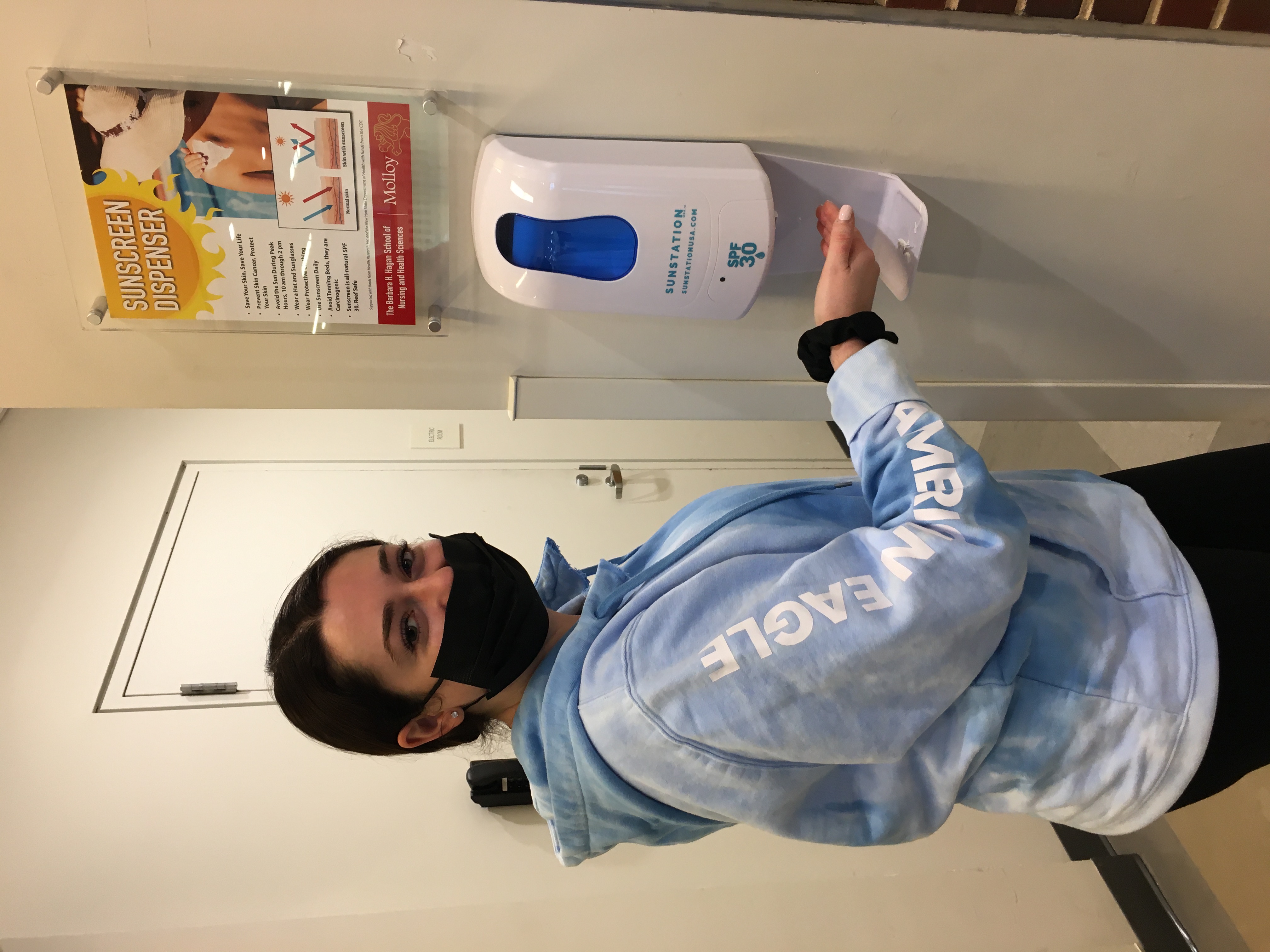
-
Skin Cancer Research and Resources
Molloy University faculty research on skin cancer
https://molloy.elsevierpure.com/en/persons/victoria-siegel Resources:
https://www.cancer.org/cancer/types/melanoma-skin-cancer.html